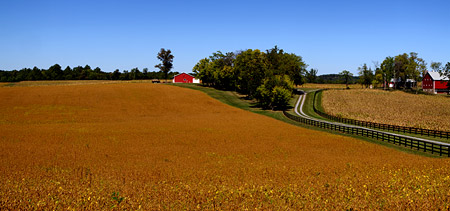IT COULD be argued that since Ahmadinejad’s central message failed to register on his Western audiences that his visit to America was a failure. The fact that no media organs felt it necessary to analyze what he was talking about could be seen as a clear sign that no one is interested in buying what he is selling. But this is a dangerous argument, for it misses a basic truth.
Ahmadinejad is not interested in convincing the US government or even the majority of Americans to convert to Islam. He is interested in convincing adherents of totalitarian Islam and potential converts to the cause that they are on the winning side. He is interested in demoralizing foes of totalitarian Islam within the Islamic world and so causing them to give up any thoughts of struggle. In this goal he is no different from any of his Sunni counterparts in Saudi Arabia, al-Qaida, the Muslim Brotherhood, Hamas or their sister organizations throughout the Islamic world and indeed throughout the West.
[. . .]
The thing of it is that aside from blind narcissism, there is a reason that the West ignores the dangers facing it. The Western media ignored Ahmadinejad’s message, just as it has insistently ignored the messages of bin Laden and Fatah throughout the years, because Westerners have a hard time believing that anyone would want to abide by the Islamic world view which denies mankind’s desire for freedom.
But no matter how ugly an ideology is, in the absence of real competition it gains adherents and power. The only way to ensure that jihadists’ demonic views are defeated is by stridently defending and upholding the fundamental principles on which the Free World is based. And the West hasn’t even begun to take up this challenge.
As a result, it has handed its enemies two victories already. It has demoralized its potential allies in the Islamic world, and it has failed to rally its own people to defend themselves.
In spite of what the West would like to believe, Ahmadinejad and his allies from Ramallah to Waziristan, from Gaza to Kandahar to Baghdad, are not negotiating. They are fighting. Rather than ignore them or seek to find nonexistent common ground, we must defeat them – first and foremost on the battleground of ideas.
USA
On War, Comprehension and Persuasion
There must be something in the water lately as I have been getting an upsurge of inquiries and public comments regarding information operations, public diplomacy, “soft power” agents of influence, 5GW and similar matters. There are other blogs I can recommend as being better on this score – Beacon, MountainRunner, Kent’s Imperative, Swedish Meatballs Confidential and Whirledview to name but a few. Also, I would suggest that interested readers search the archives of Studies in Intelligence, PARAMETERS, The Strategic Studies Institute, Combined Arms Research Library and the threads at The Small Wars Council. Genuine expertise may be found there and for discussions of theory and emerging trends, I recommend Dreaming 5GW.
That being said, I will offer my two cents anyway.
One point of agreement across the political spectrum and that of informed opinion is that the USG has not done a particularly good job of managing “the war of ideas” in the conflict with Islamist terrorism. Or against state adversaries. Or with persuading neutrals and even our own allies to our point of view. When you are having difficulty drawing even in global popularity contest with a crowd of bearded fanatics who put beheading videos on the internet, it’s time to admit there’s a problem.
9/11
What can I add to other people’s eloquent writings on this topic.
I was not surprised by the attack. I had been expecting WMD terrorism for years. I expect more of it. I am grateful that President Bush, instead of sending the FBI to Pakistan to take depositions, understood immediately that we were in a world war. IMO this was his defining act as president, from which everything else followed. If he had handled things differently then we might be in a much worse position now and for years to come.
What surprises me is how quickly so many Americans have decided to put the 9/11 attack, the war and concerns about WMD terrorism behind them. We are probably safer now than we were immediately before 9/11. But we will probably remain a target because technology that can be used to make WMD is probably only going to become more widely available.
Time will tell. In the meantime I want us to keep killing our enemies, to discourage attacks and to discourage other groups and countries from becoming our enemies.
I invite discussion in the comments.
UPDATE: David Foster has a related post here. See also here.
Sharansky Still Gets It
Few western public officials understand the current geopolitical situation, and especially the rationale for promoting democracy in the Muslim world, as well as Sharansky does. Of those who do understand, I don’t think any can explain things as clearly as he can.
There’s a quite good interview with him now in the Jerusalem Post:
